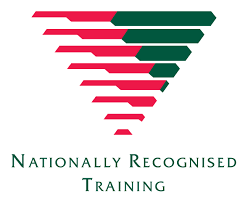ICT60220
Advanced Diploma Of Information Technology (Telecommunications Network Engineering)
(CRICOS Code: 107820H)
COURSE INFORMATION – INTERNATIONAL STUDENTS
This qualification reflects a variety of information and communications technology roles where individuals have significant experience in specialist technical skills, or managerial business and people management skills. Individuals in these roles carry out complex tasks in a specialist field, working independently, leading a team or a strategic direction of a business. They apply their skills across a wide range of industries and business functions or as a business owner/ sole trader/ contractor.
The telecommunications network engineering specialisation includes such skills as:
- managing logistics
- organisational specifications
- regulations and legislative requirements across network projects
Qualification
On successful completion of this course students are awarded ICT60220 Advanced Diploma of Information Technology (Telecommunications Network Engineering).
Target Groups
Target groups for this qualification are international students who are:
- Seeking to pursue roles in information technology
- Seeking to pursue roles in telecommunications network engineering
- Seeking to enter a new industry sector
- Seeking a pathway to higher level qualifications.
Course Duration
Trinity Institute (Australia) delivers this course over 104 weeks, including 72 weeks of training and assessment and 32 weeks of holidays.
Delivery
This course is conducted with a blended learning model that includes face-to-face learning in classrooms and in simulated workplace environments, and also via interactive online learning.
Trinity Institute (Australia) campuses:
- 35 Smith Street, Parramatta NSW 2150
- Level 5, 770 George Street, Sydney NSW 2000
Career Outcomes
This qualification is used by graduates to seek employment in a range of information technology roles such as:
- Telecommunications Network Designer
- Telecommunications Network Engineer
- Telecommunications Network Consultant
Education Pathways
After achieving this naturally recognised qualification, graduates may wish to further their study in a range of higher education qualifications in the information technology field.
Please contact Team Trinity for current course fees.
Payment terms and conditions are included in the International Student Handbook. Additionally a detailed payment plan and payment arrangements are provided in the letter of offer and written agreement which is provided to the student for their review and agreement prior to acceptance into the course. The agreement also includes details of additional fees and charges, which may be applicable.
International students are also required to take out Overseas Health Insurance Cover before arriving in Australia. Trinity Institute (Australia) provides details of OSHC providers in the International Student Handbook.
Additional costs associated with living in Australia are outlined in the International Student Handbook. Students should carefully review these costs in relation to budgeting. Further information can be found at https://www.studyinaustralia.gov.au/english/live-in-australia/living-costs.
Trinity Institute (Australia) has the following entry requirements:
International students must:
Be at least 18 years of age.
Meet the following education requirements:
- Year 12 or equivalent (including Year 10 Maths pass or equivalent); or
- a Certificate III qualification or equivalent or above.
Meet the following English requirements:
- Have an IELTS academic score of 6.0 or equivalent (test must have been taken be no more than 12 months ago).
NOTE: English language competence can also be demonstrated through documented evidence of any of the following: - Educated for 5 years in an English-speaking country; or
- Successful completion of at least 6 months of a Certificate IV level course or above in an Australian education institution; or
- Successful completion of an Oxford English language placement test with an overall score of not less than Level B2 (Upper Intermediate).
Trinity Institute (Australia) also conducts an entry interview with all prospective students to confirm their details and ensure that the course selected is the most appropriate for their needs.
Credit and RPL are available to students with prior skills, experience, knowledge, or qualifications obtained from formal studies or training, in a related area. Recognition may reduce the duration of this course.
To attain this qualification with a specialisation in telecommunications network engineering, 16 units of competency must be successfully completed. The units offered are:
- BSBCRT611 Apply critical thinking for complex problem solving
- BSBTWK502 Manage team effectiveness
- BSBXCS402 Promote workplace cyber security awareness and best practices
- ICTICT608 Interact with clients on a business level
- ICTICT618 Manage IP, ethics and privacy in ICT environments
- ICTSAD609 Plan and monitor business analysis activities in an ICT environment
- ICTNPL413 Evaluate networking regulations and legislation for the telecommunications industry
- ICTNWK612 Plan and manage troubleshooting advanced integrated IP networks
- ICTPMG613 Manage ICT project planning
- ICTTEN615 Manage network traffic
- ICTTEN622 Produce ICT network architecture designs
- BSBPMG430 Undertake project work
- ICTPMG612 Manage ICT project initiation
- BSBPMG530 Manage project scope
- BSBSTR601 Manage innovation and continuous improvement
- ICTSAD508 Develop technical requirements for business solutions

WELCOME TO TRINITY INSTITUTE (AUSTRALIA)
At Trinity Institute (Australia), we are driven by our goal to empower our students to meet their full potential. We aim to do so by providing an effective learning environment that challenges and stimulates the minds of our students. We have found that learning is more effective when students enjoy themselves.
A college may be an academic entity, but its responsibilities go far beyond studies. Trinity Institute (Australia) recognises this, and endeavours to ensure that each and every student has the opportunity to develop themselves and become well-rounded individuals in the professional world. Our commitment to achieving this is evident in the strong work ethic of our teaching staff, our cultural mix and our emphasis on personal and academic development. We value the diverse background of our learners and demonstrate this in our teaching, curriculum and services.
